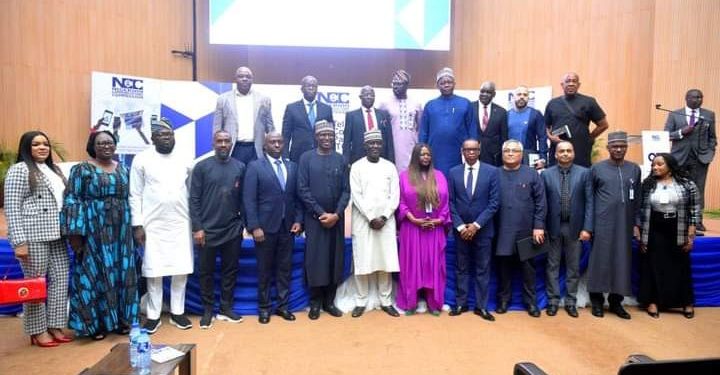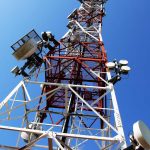The Nigerian Communications Commission (NCC) is intensifying efforts to improve consumer awareness and data transparency in the country’s rapidly evolving telecommunications sector. During the 93rd Telecoms Consumer Parliament held in Abuja, Dr. Aminu Maida, Executive Vice Chairman (EVC) and CEO of the NCC, emphasized the need for greater consumer education on data management, especially in light of Nigeria’s fast-growing digital economy.
In his keynote address, Dr. Maida highlighted the transformation of Nigeria’s telecommunications landscape over the past two decades, which has moved from basic voice services to advanced, high-speed data connectivity. With the introduction of 3G, 4G, and now 5G networks, internet access has become integral to daily life, driving the adoption of e-commerce, online banking, social media, and other digital services. Dr. Maida noted that the Internet has become essential for personal and business growth, and the role of the NCC is not just to ensure access to these services but to enhance service delivery and consumer satisfaction.
Dr. Maida pointed out the shift that began with the introduction of 3G networks in the mid-2000s, which allowed basic browsing and emailing, and the subsequent rollout of 4G LTE, which introduced faster speeds for streaming videos, online gaming, and other digital activities. With 5G now entering the scene, even faster speeds and lower latency are unlocking new possibilities for technologies like smart cities, autonomous vehicles, and the Internet of Things (IoT), creating even greater demand for data consumption.
Surge in Data Consumption
As data usage continues to soar in Nigeria, the country now faces challenges related to data depletion and the transparency of data billing. According to DataReportal, over 5 billion people worldwide are now internet users, with Nigeria accounting for 132 million connections. Nigerians spend an average of 4 hours and 20 minutes per day on social media, significantly surpassing the global average, underscoring the growing importance of digital interactions.
In 2024, Nigeria’s daily data usage reached an average of 336 gigabytes per second, a 39% increase from the previous year, indicating the country’s growing reliance on data for daily activities. However, many consumers have expressed frustration with the rapid depletion of their data, a concern that has been echoed globally. Dr. Maida acknowledged these challenges and referred to research conducted by the NCC, which identified data depletion and billing transparency as top consumer concerns.
He noted that while the NCC had asked Mobile Network Operators (MNOs) and Internet Service Providers (ISPs) to audit their billing systems, no major issues were found. Nevertheless, the perception of unfair billing persists, largely due to two main factors: the impact of high-resolution devices and the complexity of operator tariffs. With the introduction of 4G and 5G networks, as well as devices with ultra-high-definition screens, data consumption has naturally increased. For instance, a photo that once required 100 kilobytes to load on Instagram now consumes between two to four megabytes on high-resolution devices. Similarly, streaming platforms like YouTube can use between 3.5 to 5.4 gigabytes of data per hour, depending on the quality of the stream.
As digital habits evolve, the NCC has observed a global trend where internet users are spending less time watching traditional television and more time on mobile devices, tablets, and smart TVs to stream programs. This shift is contributing to the higher demand for data, particularly for high-definition and ultra-high-definition content.
Campaign to Educate Consumers
To address these challenges, the NCC, in collaboration with major telecom operators, has launched a Joint Industry Campaign on Smarter Data Usage. This media campaign, which spans radio, television, print, and SMS platforms, is aimed at educating consumers on how to manage their data usage more effectively. Dr. Maida explained that many smartphone users are unaware of the features on their devices that can help them track and limit their data usage. For instance, many smartphones run background applications like automatic updates and location services that consume data even when the device is idle. By raising awareness about these features, the campaign seeks to empower consumers to optimize their data usage.
The campaign also highlights the impact of high-definition and ultra-high-definition streaming services like Netflix, which can use as much as three gigabytes per hour in high definition and up to seven gigabytes per hour in ultra-high definition. Educating consumers on how to adjust streaming quality and manage their data can significantly reduce unnecessary consumption.
Simplifying Tariffs and Improving Transparency
In addition to the campaign, the NCC is taking further steps to ensure greater tariff transparency in the telecom sector. The Commission has issued a set of guidelines on tariff simplification, which require telecom operators to provide clear, accessible information on data plans, pricing, and terms. This transparency will enable consumers to make more informed decisions about their data usage, helping to reduce confusion and complaints about billing.
As part of the new guidelines, consumers will soon have access to detailed tariff tables and coverage maps. These maps will show the strength and quality of network coverage across Nigeria, helping consumers choose the best operators based on their location and service needs.
Dr. Maida emphasized that the ultimate goal of these initiatives is to ensure that consumers are satisfied with telecom services throughout their entire lifecycle, from SIM registration to service disposal. He stressed that the quality of service is not only the responsibility of the mobile network operators but requires a collaborative approach across the entire telecom value chain. This includes stakeholders such as TowerCos, which provide power and infrastructure, as well as backhaul services that connect base stations to core networks.
Addressing Industry Challenges
The NCC also recognizes the challenges facing the telecom sector, including vandalism and theft of telecom infrastructure, which hinder operators’ ability to deliver quality services. In response, the NCC successfully lobbied for the designation of telecom infrastructure as Critical National Information Infrastructure (CNII), a designation that was formalized by President Bola Ahmed Tinubu through a Presidential Order in July. This order strengthens the NCC’s ability to protect telecom assets and address issues related to vandalism, tampering, and unauthorized access.
Additionally, Dr. Maida acknowledged the macroeconomic challenges and the rising cost of business in Nigeria, which have affected the ability of operators to make necessary investments in the sector. The NCC is working with other arms of government and stakeholders to address these issues and ensure the long-term sustainability of the telecom industry.
Commitment to Transparency and Accountability
Looking ahead, the NCC is finalizing its Major Incident Reporting Guidelines, which will require telecom operators to notify consumers of significant disruptions to their networks. These reports will also be available on the NCC website, ensuring greater transparency and accountability within the sector. Consumers will also soon be able to view coverage maps that detail the strength and quality of network service across the country, allowing them to make better-informed choices when selecting telecom operators.
Dr. Maida concluded by reaffirming the Commission’s commitment to maintaining transparency, improving data management, and ensuring that consumers are empowered with the knowledge they need to navigate the telecom landscape effectively. By working collaboratively with all stakeholders, the NCC aims to create a more consumer-centric telecom industry in Nigeria, enhancing the overall experience for users across the country.










